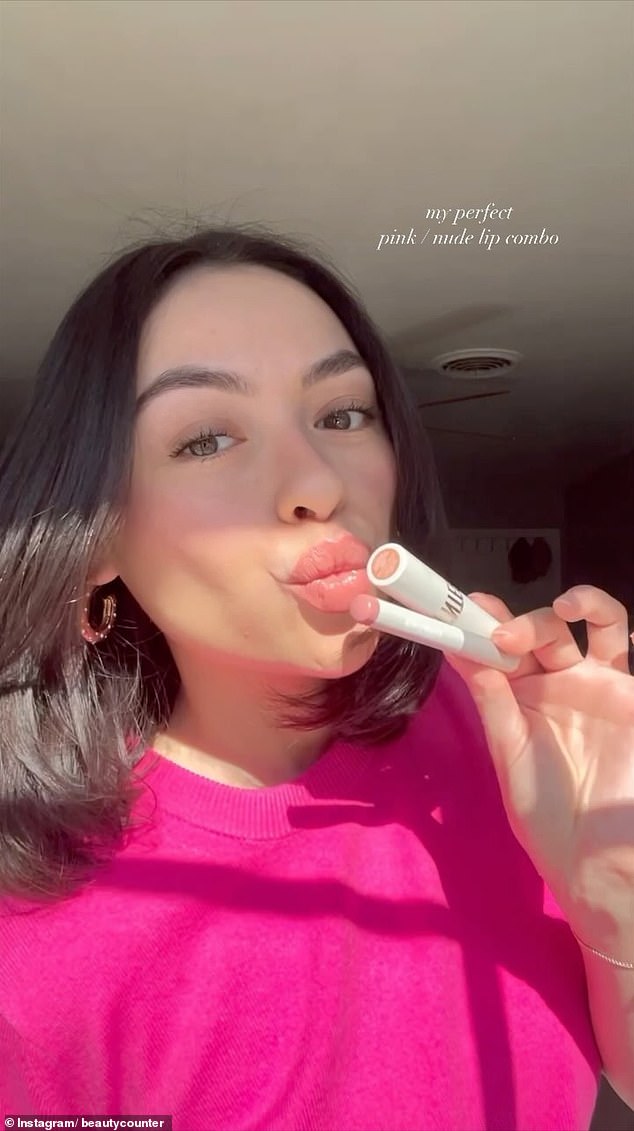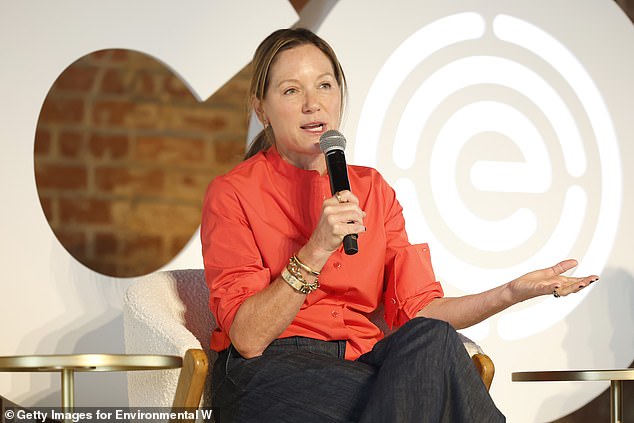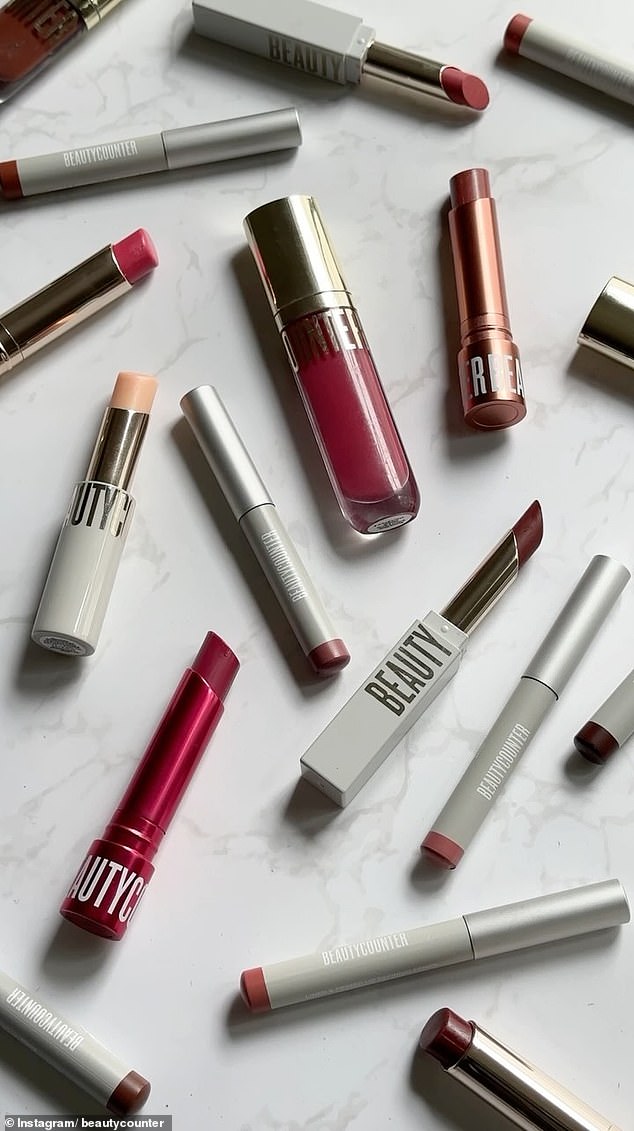How popular ‘clean’ beauty brand collapsed after private equity takeover – as the huge cut in its top saleswomen’s salaries are revealed
Beautycounter, a darling in the clean beauty space, went from a multi-million dollar brand to closing after a private equity acquisition, resulting in devastating pay cuts of over 50% for their employees.
Gregg Renfrew, who founded Beautycounter with a passion for clean skin care, began her multi-level marketing model in 2011. Carlyle, an investment firm with $425 billion in capital, took a chance and invested $600 million in the brand in May 2021.
But this investment turned out to be one of Carlyle’s biggest failures in 37 years: all the money they had invested in Beautycounter was lost.
The Carlyle takeover not only had a negative impact on company morale, but also caused salespeople’s revenues to drop by more than half.
Well-known salesperson Renee Hill, who once made millions of dollars for the company and was paid an annual salary of $177,000, now makes $19,000, the lawsuit alleges.
Favorite clean beauty retailer, Beautycounter, went from a multi-million dollar brand to closing after a private equity takeover, resulting in devastating pay cuts of over 50% for their employees

Pictured: Social media content for Beautycounter products on Instagram
“There was a lot of damage done,” Hill said. “I don’t think I could ever go back into that room.”
In acquiring a controlling interest in Beautycounter, Carlyle facilitated a partial sale of Ms. Renfrew’s ownership for about $50 million, according to people directly involved in the transaction.
Renfrew remained as the company’s CEO, and both parties shared an ambitious goal of growing Beautycounter’s annual revenue from $400 million to $1 billion, which would culminate in an IPO.
Before the acquisition, Renfrew had successfully launched and sold a wedding e-commerce website. But she decided to follow her true passion: popularizing “clean” beauty. She set out to create products without harsh chemicals and unnecessary additives, using as few ingredients as possible.
Renfrew built an enthusiastic community of promoters, mainly women, who enthusiastically brought Beautycounter to the attention of their loved ones.
These promoters not only championed the brand’s sugar scrubs, cleansers and creams, but also seized the opportunity to build their own sales teams. By recruiting others, they earned a commission on all sales within their network.

Gregg Renfrew, who started Beautycounter with a passion for clean skin care, began her multi-level marketing model in 2011. Carlyle, an investment firm with $425 billion in investment power, took a chance and invested $600 million in the brand in May 2021

But this investment turned out to be one of Carlyle’s biggest failures in 37 years, with all the money they had put into Beautycounter gone. Not only did Carlye’s acquisition destroy the company’s morale, it also cut their sales reps’ revenues by more than half.
This strategy proved highly successful. At its peak, Beautycounter had a team of 60,000 salespeople, initially called consultants and later “advocates” under Carlyle’s ownership.
Hill is an example of the power of this approach. She joined Beautycounter just weeks before having her fifth child in 2016, introducing the brand to her family and close friends.
Over time, her personal efforts led to the recruitment of 40 individuals, who in turn grew the network to 400 salespeople, generating six-figure annual incomes.
She had been offered other multi-level marketing positions in the past, but turned them down for the same reasons that had made the other salespeople so enthusiastic about Beautycounter: Renfrew’s leadership, her open dialogue with employees, and her advocacy for non-toxic ingredients in everyday products.
“It also made it really easy for me not to feel guilty about offering a network marketing opportunity to someone because I was so passionate about what we were doing and how we were doing it,” Hill told the New York Times.
Renfrew fostered a strong sense of community by treating independent salespeople as valued members of her team. This loyalty extended to advocacy efforts, as salespeople joined Ms. Renfrew on trips to Washington to lobby for stricter regulations in the personal care industry.
According to sources familiar with the company’s finances, the company already had a turnover of $395 million in 2020, after having already become profitable the year before.
As soon as Carlyle bought the brand, once-dedicated salespeople began leaving and sales plummeted. The company blamed the pandemic for the sudden exodus of salespeople, citing a waning enthusiasm for the job.

Fast forward to late 2023, Carlyle handed the business over to its lenders, Bank of America and JPMorgan Chase, who would be responsible for selling off what was left. For Carlyle, that meant essentially giving up a $700 million investment and valuing it at zero.
In a desperate attempt to maintain the sense of profitable camaraderie that Renfrew had built for a decade, Carlyle hired a new CEO, Marc Rey, with expertise in mainstream beauty, in February 2022 to save the company.
Rey then restructured the commission system for the salespeople, which would reduce their commission and completely revamp the company’s main selling point, “clean” beauty.
At the end of 2022, Renfrew left the company and stepped down from her board position. Carlyle, the investment firm, provided additional funding of $65 million between the end of 2022 and the beginning of 2023. With their support, Rey, the new CEO, invested more than $10 million in modernizing Beautycounter’s technology and brought in consultants.
He also entered into a sales agreement with Ulta, a major beauty retailer, to sell Beautycounter products.
Despite these efforts and a 14% increase in total prestige beauty sales in 2022, Beautycounter’s sales continued to decline, leading to Rey’s resignation in May 2023.
Fast forward to late 2023, Carlyle handed the company over to its lenders, Bank of America and JPMorgan Chase, who would be responsible for selling off what was left. For Carlyle, that effectively meant giving up a $700 million investment, valuing it at zero.
Renfrew bought the rights to the Beautycounter name and other sets from the lenders for millions of dollars, but surprised sellers when she announced it would take months to get the company back on track.
